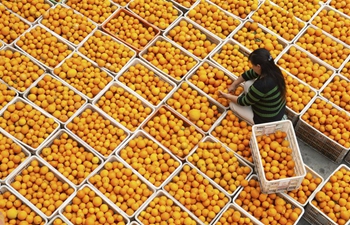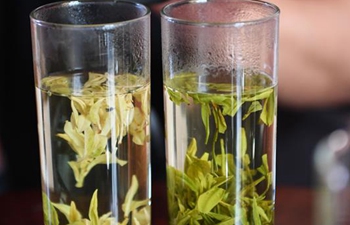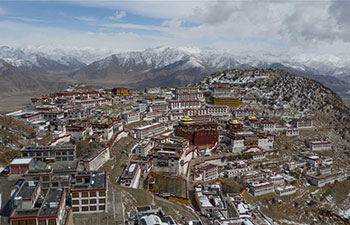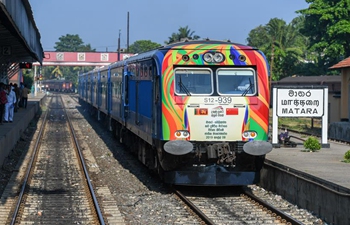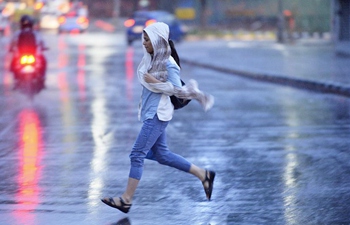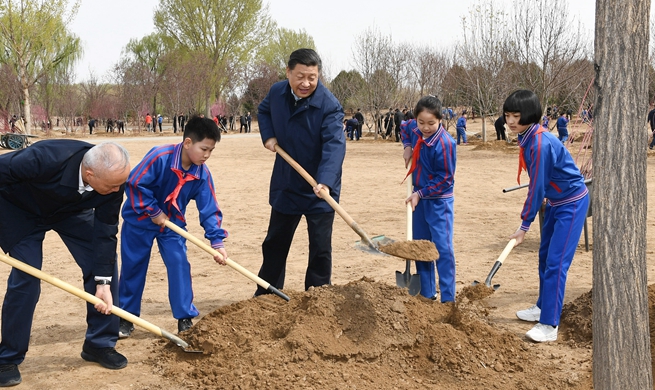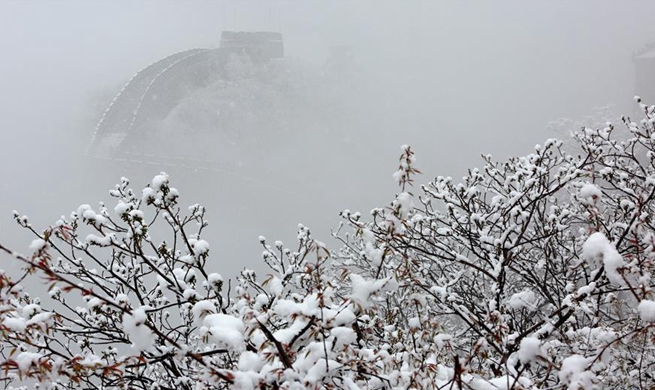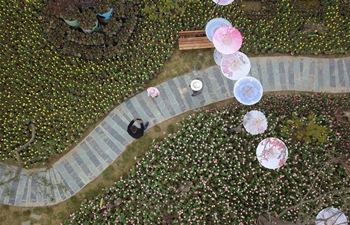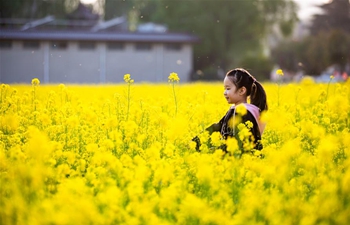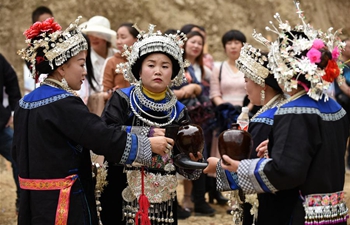WINDHOEK, April 9 (Xinhua) -- Namibia's Ministry of Agriculture, Water and Forestry and the University of Namibia are running trials on conservation agriculture techniques to improve environmental and sustainability of farming, a government official said here on Tuesday.
The experiment is being conducted at the Mashare Irrigation Development Center in the north-eastern part of the country.
The project, implemented as part of the national conservation agriculture program, was developed to support the country's Fifth National Development Plan target of 50 percent of farmers adopting conservation agriculture by 2022, said Berefine Antindi, deputy director of agricultural development and engineering services in the ministry.
Conservation agriculture techniques under experiment include weeding methods, planting, soil restoration and water retention.
"Namibia is severely affected by climate change, characterized by sporadic rain. Therefore, it requires stakeholders to explore practices that would enable the country and farmers to be productive and sustainable," Antindi said.
Since 2013, Namibia experienced persistent drought, negatively affecting about 60 percent of the households dependant on crop farming and agriculture.
Professor Fesseha Itanna from the University of Namibia said that the ongoing conduction of various trials also entails growing leguminous plants as crops to test the ability to suppress weed.
"The soils nutrient status can be easily depleted through erosive forces or degraded land. Moreover, coupled with water shortfall as in the case of this year, thus necessitated the conduction of such an experiment in conservation agriculture," Itanna added.
The conservation agricultural techniques, if adaptable, are expected to reduce disruption of the soil's structure, restore water, and combat some of the challenges Namibia faces in terms of agriculture, and thus aid subsistence farmers to be productive amid a dry spell.
The project is being supported by German Society for International Cooperation, with a focus on the northeastern regions of Kavango West and Kavango East, as well as the Zambezi.
